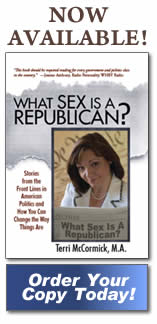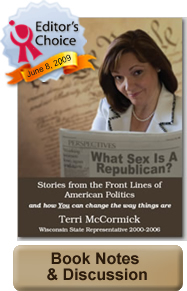 The source of resistance to change is human emotion. In the political environment, reaction and perception are reality.
The source of resistance to change is human emotion. In the political environment, reaction and perception are reality.
COALITION BUILDING
Since the Charter School Association had no money, it was time to build a broad statewide coalition of integrity-driven citizen leaders. With uncertain support from politicians, we would need a multifront strategy.
My motivation was twofold: my passion to help children caught in ineffective educational systems, and the fact that time was running out on my commitment to Howard Fuller—six months was up at the end of the 1994 legislative session.
WASB
We managed to create a strong alliance from an unlikely source: the Wisconsin Association of School Boards (WASB). Admittedly, the WASB was a reluctant ally in the process of defining and writing laws for self-governing public charter schools. Due to the power of the teachers union, however, the WASB found itself at a crossroads.
Parents and administrators alike voiced the need for more public school options to meet the needs of their diverse school communities. It was this convergence of voices from all constituencies within school districts that empowered the superintendent’s ranks, which began to see public charter schools as a part of their arsenal in educating children who were underserved and struggling.
The support of public charter schools, however, came with a hefty personal and professional price. Back in 1994, the radical idea of “public charter schools” was a political hot potato. The Wisconsin Association of School Boards magazine told the story in an article titled “The Ten Who Dared.”
This denoted the ten superintendents who dared to step forward to support the public charter school alternative for their schools. Those ten superintendents would soon become the seven … and then the five … and then, ultimately, the three who dared, due to the overwhelming pressure and hard-ball politics played by the state’s largest teachers union.
The teachers union was a powerful lobby, garnering the support of legislators in my state who were motivated by fear and were then moved to inaction. Any attempt to effect change within the public school system was quickly quashed because the union itself had other ideas. Members didn’t want to, as they put it, “lose power and control” by adopting a charter school program.
There was so much political angst from union stewards that those teachers who dared to teach in a public charter school were punished. The common penalty was to lose all seniority within the public school system, and with that, they forfeited their pensions and benefits. Soon, teachers unions forced charter school teachers out of their retirement and benefits packages altogether. This was the price they paid for stepping outside the ranks of union protection. It was an overt attempt to strangle the public charter school movement.
In one case, a school administrator who had moved to Wisconsin from Colorado confided in me as a member of the Wisconsin Charter School Association. With more emotion than I usually heard from a grown man, he told me, “I can’t lose my job. I need to be able to feed my family.”
My response consisted of two words: “I understand.” As difficult as it was to see him go, I did understand, on a personal level, what he was going through.
“I am sorry,” he continued. “I have to drop out of the charter school movement.” He sounded tired and beaten. This was my first taste of the politics of fear and intimidation. This was the price a public school teacher or administrator would pay for supporting something as “radical” as public charter schools.
A PERSONAL PRICE
My children were subject to pressure and added criticism in their public elementary schools. Worse, I received a warning on my home phone, telling me, “Stop supporting these charters—or else.” Unshaken, I asked, “Or else what?” The voice on the other end of the phone pushed further. “Check underneath your car before strapping your children in their car seats.”
That is the price one pays for being a “change agent,” a “reformer.” It was a personal price, one that tested my convictions and my ability to see past the smokescreens and the fear tactics, even those introduced to my own children.
I had a choice to make—curl up in a ball and be a victim, or stand tall and continue to do the right thing. This was a difficult decision for me. Any number of fears ran through my mind as a parent of young children—guilt, panic, anger, indignation, remorse.
Incidents of intimidation were reported at my daughter Kellie’s elementary school. One such report occurred in the form of a personal phone call to me from another parent, who was volunteering at the front desk at Kellie’s school.
This parent was so disturbed by the treatment my daughter received that she phoned me at home. My immediate response was to get the principal on the phone—he clearly loved children, and I trusted him to verify for me what was happening in my daughter’s fifth-grade classroom.
The principal’s response was as follows: “Yes, Terri, Kellie’s desk has been pulled out of the row and pushed to the far back corner of the room.”
“Would you tell me if there are boxes on it and a plant, so that she may not even have a seat in her classroom?” I asked, wanting clarification of the report I had received.
“Yes,” he admitted, “there were boxes on her desk, and I removed them so she has a place to sit.” If the principal thought to pacify me with that statement, didn’t work.
“I am leaving my meeting, and I am driving directly to school so that we may chat,” I declared. Later, the principal and I discussed the options that lay before me: pull my children out of public school, confront the teacher, see to it that Kellie was not singled out for no reason again. This was a stupid act by a teacher who was either told to intimidate the child of the president of the Wisconsin Charter School Association, or it was a thoughtless act of a teacher who needed help.
After that incident, I consulted a close friend and colleague, who gave me the words that I needed to hear: “Intimidation by those who do not want change will continue, Terri. Are you willing to back away from what you know is important to so many children and let this continue?”
My children needed to know that they would be protected. And at the same time, they needed to know that we, as a family, would not back down to fear. Undaunted, I continued to lead the charter school movement through the passage of the public charter school bill, signed in 1996. More determined than before, I set out to impress upon the politicians that public charter schools had widespread support.
I appealed directly to the people of the state through editorial boards, letters to the editor and, most important, through the statewide network of faith-filled, heart-filled parents and families who were fighting for the survival of their children, students and communities.
Building a strong grassroots base of support was critical if we were to take on what was feared to be an unmoving union. The Wisconsin Charter School Association and its members met monthly and spoke via the Internet and on the telephone frequently, as challenges and crises intervened. Listening to the concerns and feedback of the charter school organizers from around the state, we created communication strategies that kept our organization energized and filled with hope.
To continue reading this chapter, get your copy of “What Sex is a Republican in paperback or Kindle edition on Amazon.
About the Author:
Terri McCormick is an author, policy expert, educator, and former state representative to the Wisconsin State Legislature. Today, she offers her expertise in public and government relations through McCormick Dawson CPG Ltd., a trusted consultancy of independent contractors.
Ms. McCormick serves as president and CEO of the company, drawing from more than two decades of professional experience, a strong educational foundation, a host of industry-related publications, and a multitude of accolades, awards and formal recognitions. Holding a Master of Arts in administrative leadership from Marian University, and a Bachelor of Science in political science and public administration from the University of Wisconsin, Ms. McCormick received both degrees with high honors.
“What Sex is a Republican?” is sold on Amazon in both the paperback edition as well as Kindle edition. Read reviews on Amazon here.




I am for all kinds of alternatives to federally controlled public education but we must be careful too about charter schools as many of them are owned and operated by Muslims. Just know what you are hooking up with.
I appreciate your concerns as all schools must provide the best learning environment for students. Although I’m unaware of your information and have never witnessed this myself, I appreciate the time you took to post a comment to the blog post.
Have not heard of that possibility Barbie – the opponents to school reform were the status quo unions in 1994 when this happened. Many things have remained the same, but the spin against creating a true learning environment for “all” students has gotten worse. Here is one; “public money must go to public schools” … hmmm I thought the money came from very private people? – to fund very public children in all schools? ….. always a learning lesson!
Look into it, Terri, because it is true. Our local one is owned and run by Muslims and even if one is broad minded about Muslim immigration, you really don’t know which of them are sending funds to terrorist organizaions. Just something to consider.
Many many deceptions out there to be sure! Thank you so much for posting.